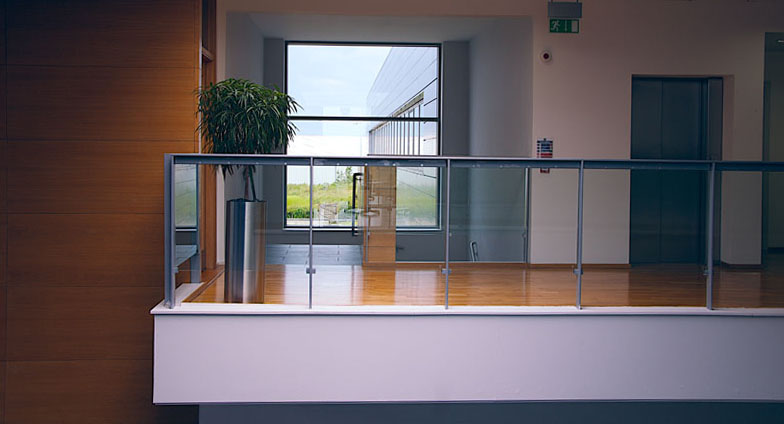By James A. Schnur, CCIM
President and Designated Managing Broker
Integrated Real Estate Solutions
After scoping out the perfect location, it’s time to saddle up to the table and hammer out the fine details for your relocation. Taking the plunge and signing a lease on a commercial property is no small feat; requiring a multitude of considerations. Ideally, the lease will strike a fair balance of responsibility and risk between the owner and tenant, but it can be easy to overlook important details within a lease that will shift this balance of costs in an unfavorable direction. To help you navigate through this process without becoming overwhelmed, here are 5 important issues to consider when negotiating a lease for your business.
1. Time is of The Essence When Considering Lease Terms
Landlords will, by and large, strive for a longer lease term to guarantee occupancy in their property. Identifying a lease term that aligns with your business needs, especially when considering the potential for growth (both in labor and resources), or potential pivots that require downsizing, is critical.
When considering whether a short-term or long-term lease is the better option, every facet of your business should come into consideration—everything from the day-to-day operation needs, to future business goals, to employee transportation needs, to potential impacts on material handling logistics—there is no consideration that is too small; because, ultimately, the lease terms you finalize will have an impact on your future business considerations. We discuss this in more detail in our column “The Question Every Broker Must Ask”, “The goal is to structure a transaction that enhances your overall business strategy.”
2. Getting in the Zone
When approaching the table, it’s important to be open about the intended use of the property up front. With this in mind, the landlord should be able to say outright whether the property you’ve decided on is zoned correctly for your use, but it’s still important to independently verify this information with the local zoning office.
Without express permission from the governing body, the negotiations of the lease are moot if the property itself is not properly zoned for your business use. Occasionally, the owner of the property will give you information they believe in good faith to be true, but they are not aware of the actual regulations surrounding the property because, oftentimes, zoning is complex and up to interpretation. To save yourself money and, more importantly, time, doing your own legwork to verify the zoning will be invaluable.
3. Understand What You’re Walking into
More often than not, if you’re planning on leasing a space that was previously occupied, the space you’re leasing will need some modification to fit your operational needs. Optimizing the space for your needs, then, is vitally important to avoid relocation remorse, and can require significant resources (i.e. costs) to build out space.
These costs can add up quickly, especially when spaces need more than just additional walls or doors, such as additional lighting, HVAC, multimedia wiring, additional plumbing (adequate restrooms are important!), or any specialized spaces. It’s important to assess any of these needs as early as possible to finalize your tenant improvement budget before negotiating the lease. Often landlords will provide funding, or perform some, or all, of the required work at their cost.
4. Hidden Costs
There is no clause too minuscule to overlook or ignore. For instance, when figuring out the fine details, consider potential building maintenance and repair, as most landlords will, understandably, see this as a necessity. Maintaining the building, and the need for necessary repairs can be reasonably expected throughout the lifetime of a lease. The responsibility for payment of these costs should be negotiated so that they are fairly balanced between the landlord and the tenant.
Additionally, provisions for running utilities through the night outside of business hours, pass through operating expenses, and property taxes should be addressed and negotiated. It’s these terms where the next step will be most important.
5. The Professional Touch
If these last points have proven anything, it’s that tackling a commercial lease alone is a complex and involved process. Bringing on an expert in the field to help navigate the choices and provide insight at every step is key.
A commercial property tenant representative broker not only knows the terminology and opportunities available during a lease negotiation, but they also work with you to understand your needs within a location. Furthermore, should you run into any future issues with the property owner once your lease is negotiated, the tenant rep broker is available to consult with you, and step-in to the discussion directly, as necessary, providing peace of mind for you to focus on what’s most important: your business.
Integrated Real Estate Solutions proactively looks at commercial real estate opportunities and solutions that make sense on all levels for our user clients. Leverage our experience and expertise by talking to us about your plans and vision.
Integrated Real Estate Solutions, Inc. provides clients with the in-depth knowledge and experience that is critical to determine the right path to your next move, lease renewal, or strategic re-positioning of your real estate portfolio. Contact us or call 847.550.0160 today about your needs, and put our success to work for you.

